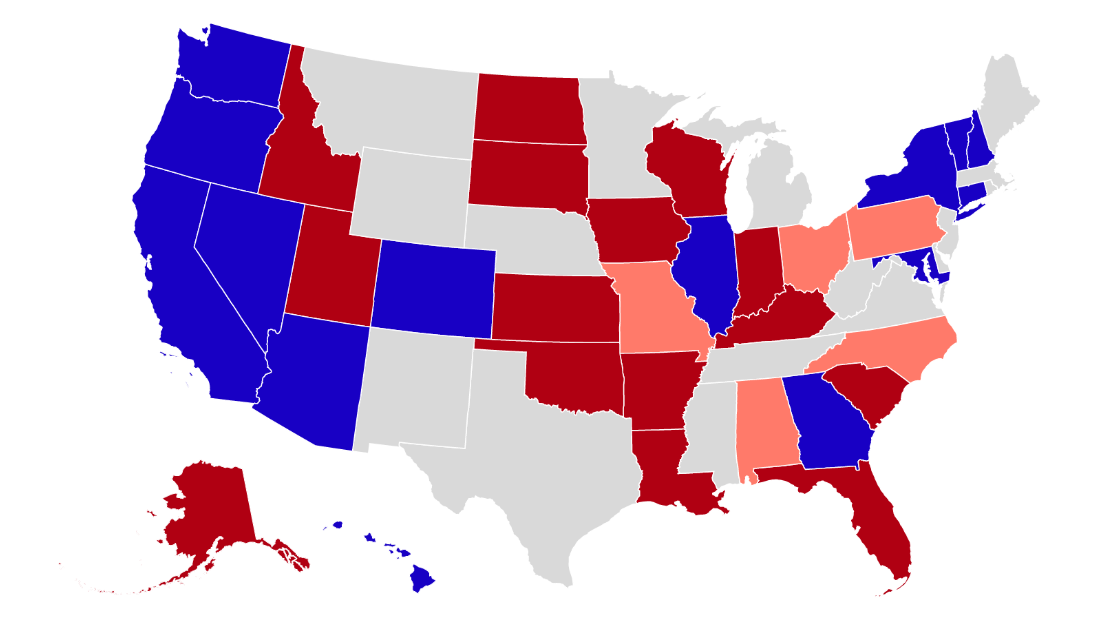
The Republican senator has been in office continuously in Iowa since — wait for it — 1959. (He’s currently 87 years old.) And he was elected to the Senate in 1980, which makes him the second-longest-tenured senator behind only Democrat Pat Leahy of Vermont, who was elected to the chamber in 1974.
What’s as remarkable as his long run in office is how popular he has remained among Iowa voters — a notoriously fickle bunch — over all that time. Aside from the 54% he received in his first Senate race in 1980, Grassley’s winning percentage has never dipped below 60%(!) in six subsequent reelection races.
So dominant a figure in Iowa politics had Grassley been that Democrats nationally have stopped seriously challenging him in his last few reelection races despite the overall swing-y nature of the state.
Grassley’s reign may well be ending, however — at least according to some eye-popping new numbers from the Des Moines Register poll released over the weekend.
Fully 64% of Iowa likely voters told pollster J. Ann Selzer that it was “time for someone else” in 2022 (when Grassley is up for an 8th term) while just 1 in 4 (27%) said that they planned to vote to reelect the incumbent. That’s a significant decline from even where Grassley was earlier this year in Register polling; in March, 55% of Iowans wanted Grassley to end his political career next year as compared to just 28% who said they would like to see him run for another term.
And it’s not just disgruntled Democrats fueling Grassley’s weak reelection number in the new Register poll. More than 1 in 3 (37%) of self-identified Republicans say they are ready for someone other than Grassley. Which is a big number. Also worth noting: Almost 7 in 10 (68%) of politically crucial independents want someone else other than Grassley too.
“Chuck Grassley has had a long and mostly good run, but most Iowa voters appear ready to move on, and his ratings reflect waning interest,” Selzer told the Register, adding: “Given that we’re talking about Chuck Grassley and the ratings he used to garner, that is a ‘wow.'”
Now, before we go any further, it’s worth noting that a poll question like this one isn’t a perfect predictor of Grassley’s chances if he runs again next year. When you ask people whether they want Grassley or “someone else,” you are comparing a known quantity with all his warts to an ideal candidate. The “someone else” for Democrats is almost certainly a Democrat. The “someone else” for many Republicans may well be a younger and more Trump-y candidate.
But no matter who that ideal candidate is for any particular Iowan, it’s certain that that candidate doesn’t actually exist. Every actual candidate has weaknesses (and strengths) that a voter would have to asses vis a vis Grassley.
So, when you match up a longtime incumbent against “someone else,” the latter nearly always “wins.” The actual candidate Democrats (or Republicans) would field against Grassley would not be beating the incumbent with 64% of the vote.
All that said, these numbers are NOT what Grassley and his political team want to see. They suggest there has been a considerable softening toward him across a variety of groups. And the numbers among Republicans could well entice a more-MAGA candidate to take a look at a primary challenge to the incumbent.
How much do numbers like this influence Grassley’s thinking about whether or not to run again? (In March, Grassley said he would not make a decision on whether he was running again until “September, October or November.”) He will insist they play no role. But to believe that you have to ignore everything we know about politicians — which is that they are ALWAYS aware (and worried) about where they stand with voters and terrified that they won’t be able to end their careers on their own terms.
These numbers will stoke that worry in Grassley — and will at least be a factor as he decides his political future this fall.



